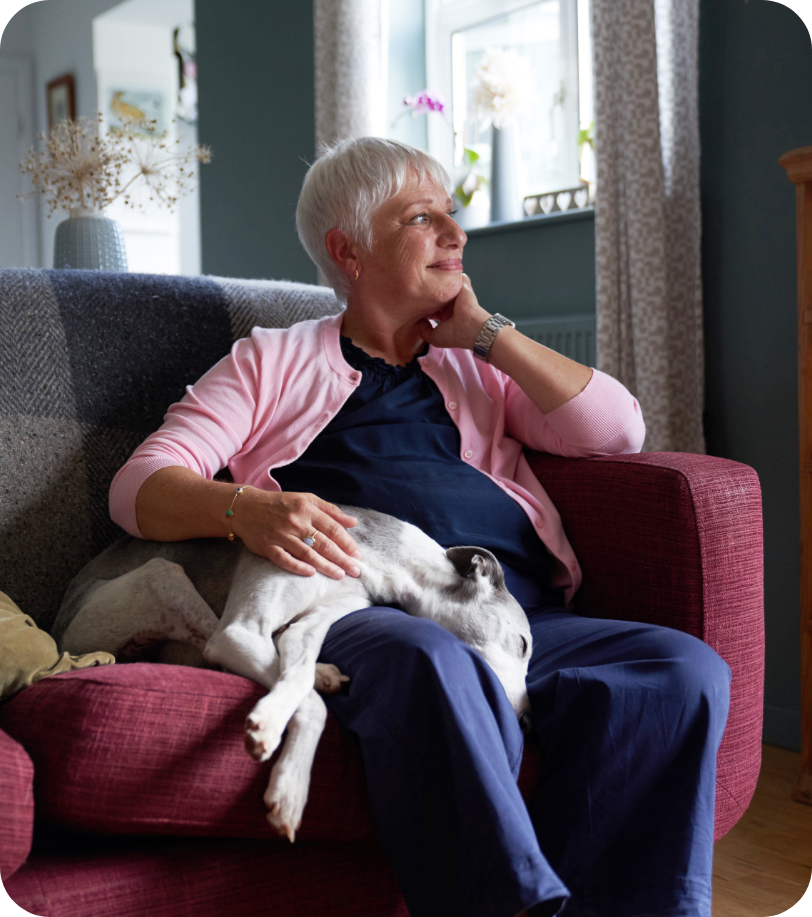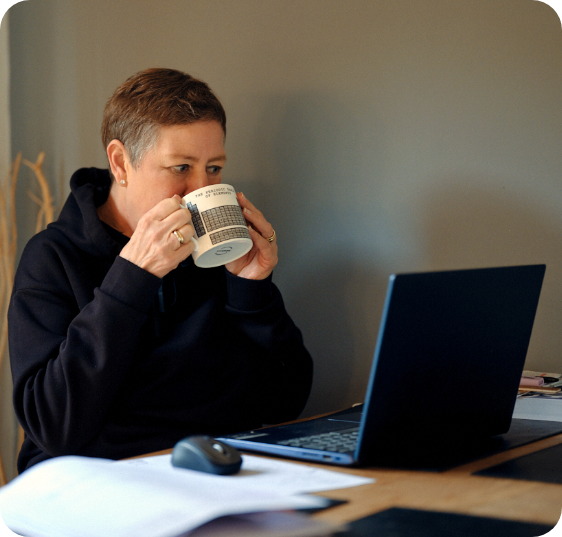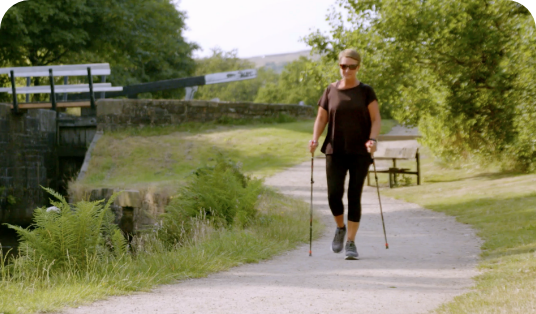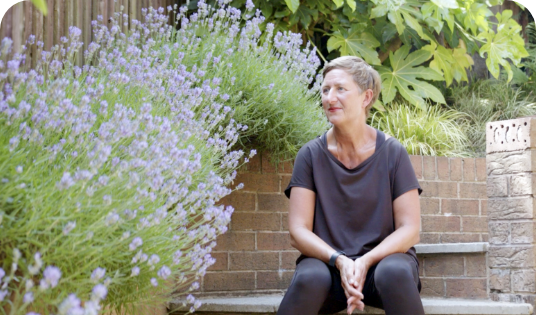Breast cancer diagnosis
Help for those who have been diagnosed with breast cancer
Moments That Count has been developed and funded by Novartis Pharmaceuticals UK Limited and is intended for a UK general public audience.
Help for those who have been diagnosed with breast cancer
Finding a support group
Receiving a breast cancer diagnosis is an emotional time. Surrounding yourself with a good support group and trying to learn as much as you can in order to better understand your breast cancer diagnosis can be helpful.
Telling your loved ones
Everybody handles their diagnosis differently and it is important to remember there is no right or wrong way to handle the news. Partners, friends and family might share some of these feelings too, so it can be helpful to discuss it with them when you feel ready.
There is a vast amount of available support which your healthcare professionals can arrange for you and your loved ones, including counselling, social work, meetings with a psychologist and more.
Know you are unique
By gaining a better understanding of your prognosis, stage and type of cancer, you can keep up to date with your available options and how they aim to help you on your treatment journey.
Every case of breast cancer is unique, which means treatments and side effects can vary greatly between people. Some patients find it helps them to build a better understanding of their condition in order to know why they are being recommended certain treatments.
Click below to view the full series of psychologist videos.
Your doctor or nurse will examine your breasts and the lymph nodes in your armpits and
around your neck.
Pre-diagnosis tests
After your examination, your doctor or nurse will tell you what tests you need:
An x-ray of your breasts. This is used to help diagnose breast cancer and other breast
conditions.
Uses soundwaves to create a picture of your breast tissue. You will also have an ultrasound
scan of the lymph nodes in your armpit.
During a breast biopsy, the doctor removes a small piece of tissue or cells from the lump or
abnormal area. The sample is checked for cancer cells. There are different ways of taking a
breast biopsy.
Post-diagnosis tests
If the biopsy results show there are breast cancer cells, you will need further tests.
A blood test is carried out to check your general health and how well your kidneys and liver
are working.
A chest x-ray is carried out to check your lungs and heart.
An MRI scan uses magnetism to create a detailed image of your body. This could be used to
find out the size of the cancer and help your healthcare team decide which operation you
have.
A CT scan uses a series of x-rays to build up a 3D picture of the inside of your body.
A bone scan will show any abnormal areas of bone. A small amount of radioactive substance is injected into a vein, and the scan will be done after a 2/3 hour wait.

Biomarkers are a biological molecule found in the blood and other body fluids or tissues. They are a sign of a normal or abnormal process, or of a condition or disease. These may be used to see how well your body is responding to treatment for diseases. Important biomarkers in breast cancer include hormone receptors (HRs) and the protein HER2.
What are biomarkers used for?
Testing your biomarkers can help you and your healthcare team to select an appropriate treatment. Treatments like targeted therapies and immunotherapies may only work for people who have specific biomarkers; therefore, your biomarkers are tested in order to determine the best course of action.
To learn more about specific biomarkers and genetic mutations click below to download our guide.
Throughout your journey, you will meet lots of different healthcare professionals who each fulfil a role in your care. Once your diagnosis is confirmed, you will be introduced to a specialist team, which is known as a multidisciplinary team or MDT.
If you would like to read more about the type of support you should be receiving for your cancer care, including the healthcare professionals that should be assigned to you, visit Macmillan Cancer Support.

Surgeon²
Specialises in breast cancer surgery and may do reconstruction surgery.

Plastic surgeon²
Specialises in breast reconstruction.

Cancer doctor (oncologist)²
Specialises in cancer treatments.

Specialist nurse²
Gives information and support.

Radiologist²
Specialises in x-rays and scans.

Pathologist²
Specialises in studying tissue samples and cells.

Patients support groups²
While not a part of your professional MDT, there are plenty of other groups you can talk to. Patient support groups are a fantastic place to find people in a similar situation to yourself to share support, knowledge, tips, advice and stories. Learn more about patient support groups here.
During this short video, Alistair delves into how to embrace life and accept a long-term diagnosis. He discusses how acceptance involves stopping the struggle with aspects of life we cannot control.
Something as simple as talking about your breast cancer diagnosis can be a great emotional help. At times, you might feel like you don’t know what to say or how to say it. Other times you may not want to talk about it at all. Whether or not you choose to speak about what you are going through, you may find it helpful to surround yourself with a breast cancer support group who are willing to listen when you feel ready.
How can I tell my friends and family?
Breaking the news to your friends and family can lead to a difficult and emotional conversation. Doing so when you feel ready and in a way that suits you may be of help.
Below are a few recommendations:
Click below to download our guide on talking to others for more suggestions.
Throughout your appointments and treatments, you may come across some medical language which can sometimes be confusing and difficult to understand.
If there is anything you have not understood throughout your breast cancer journey, you may want to share this with your healthcare professional. Breast cancer and its treatments can be complex, and your healthcare team is there to build you have a better understanding. Taking notes home with you to discuss with your breast cancer support group can be helpful too.
To find out more, click the button below.

Your healthcare team is your best resource throughout your treatment. Talk openly and often with them about your doubts, questions and concerns. We have developed a guide to support you in having these conversations with some tips to help you find the information you need.

Learn more about...

Breast cancer treatment
Understand breast cancer treatments and how your treatment will be decided.

Quality of life with breast cancer
Find out what you can do in your daily life to maintain a healthy body and mind.

Coping with breast cancer
There is lots of help out there for you and your support Group. You are not alone.
References
UK | October 2025 | 284562-1
Please take a moment to complete the following - it’s completely anonymous so none of your personal data is stored. All responses will be pooled together and the collective results will be studied by Novartis so we can continually improve our information and resources for patients.
Moments That Count has been developed and funded by Novartis Pharmaceuticals UK Limited. It has been created in collaboration with secondary breast cancer patients whose knowledge and insights have informed the content and direction for the campaign.
This website is part of a programme that is funded by Novartis Pharmaceuticals UK Limited. Novartis Pharmaceuticals UK Limited is a private limited liability company registered in England and Wales under number 119006. Registered office 2nd Floor, The WestWorks Building, White City Place, 195 Wood Lane, London, W12 7FQ. Use of this website is governed by our Terms of Use and the Cookies and Privacy Policy.
Reporting side-effects
If you get side effects with any medication you are taking, talk to your doctor, pharmacist or nurse. This includes any possible side effects not listed in the information leaflet that comes in the pack. You can report side effects via the Yellow Card Scheme at www.mhra.gov.uk/yellowcard. By reporting side effects, you can help provide more information on the safety of your medication.
©2024 Novartis Pharmaceuticals UK Ltd - UK | April 2025 | 124182-5 This site is intended for a UK general public audience.
